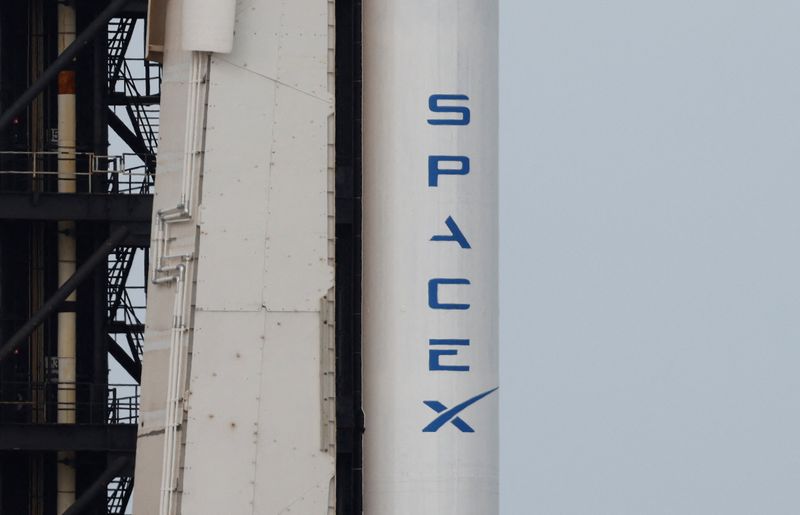Amazon, SpaceX will test US labor board’s powers at conservative appeals court

By Daniel Wiessner
(Reuters) – A U.S. labor board whose enforcement powers are being challenged in a series of lawsuits is set to defend itself from attacks by Elon Musk’s SpaceX and Amazon.com in a conservative U.S. appeals court, as the agency also braces for a potential overhaul under President-elect Donald Trump.
Amazon, SpaceX, and many other companies are going on the offensive by suing the National Labor Relations Board in order to block it from pursuing cases accusing them of illegal labor practices, part of a broader onslaught by businesses and conservative groups on the “administrative state.”
The Amazon and SpaceX cases being heard by the New Orleans-based 5th U.S. Circuit Court of Appeals on Monday are among the first of more than two dozen similar lawsuits – which claim the NLRB’s structure is unconstitutional – that have reached influential U.S. appeals courts.
Court rulings invalidating the agency’s in-house proceedings could bring the board’s work to a standstill. And they could potentially tee up review by the U.S. Supreme Court, whose conservative majority has in recent years reined in the powers of federal agencies.
The NLRB is the agency that enforces private-sector employees’ rights to advocate for better working conditions, organize, and join unions. The board’s general counsel issues complaints accusing employers or unions of illegal practices, which are heard by administrative judges whose decisions can be reviewed by the five-member board.
Democratic President Joe Biden has proclaimed himself the most pro-union president in U.S. history and his appointees to the board have kept pace, issuing a series of rulings that have boosted union organizing and riled trade groups.
The challenges to the board come as unions are filing petitions to hold elections and winning them at rates not seen in decades. Companies including Amazon, Starbucks and EV maker Tesla, where Musk is chief executive, have frequently been in the agency’s crosshairs as they have faced the first union campaigns in their history. Some of them are now pushing back by claiming the NLRB’s enforcement proceedings are unlawful.
Trump’s election to a second White House term could separately hobble the NLRB as the Republican and his supporters – including Musk, who has emerged as a top adviser to Trump – have vowed to curb the powers of administrative agencies.
Trump’s appointees to the labor board may also be less inclined to vigorously defend it from legal attacks, including these lawsuits, and could be more likely to acquiesce to appeals courts that invalidate parts of its structure, experts said.
Trump’s transition team did not immediately respond to a request for comment.
‘PLAY HARD BALL’
Amazon and SpaceX claim that the NLRB’s five members appointed by the president are improperly shielded from being removed at will by the White House, and that the agency’s administrative process violates the constitutional separation of powers and the companies’ right to a jury trial. SpaceX also says that the president should be able to fire administrative judges who hear board cases at will.
Amazon is seeking to block the NLRB from ruling on whether it must bargain with the first union in its history at a New York City warehouse. SpaceX is fighting an NLRB case accusing it of firing engineers critical of Musk. Each company has filed a second lawsuit against the NLRB stemming from separate board cases, which are also likely to end up at the 5th Circuit.
Amazon and SpaceX, which have denied wrongdoing in the underlying board cases, did not respond to requests for comment. An NLRB spokeswoman declined to comment.
A growing number of similar cases challenging the NLRB’s structure has been filed in courts nationwide. But an outsized proportion of them, including the Amazon and SpaceX cases, had their start in federal courts in Texas. Those courts, overseen by the 5th Circuit, have become a favored destination for companies and conservative groups challenging the powers of U.S. agencies.
Critics, including the NLRB, call the practice “judge shopping” and have sought to curb it, including by asking judges to transfer cases out of Texas. Many of those same critics have accused companies suing the NLRB of seeking to distract from their violations of workers’ rights to advocate for better working conditions.
The 5th Circuit is widely considered the most conservative federal appeals court, with 12 of its 17 active judges appointed by Republican presidents, and has issued several rulings in recent years curbing federal agencies’ powers.
“It’s been this signal for employers that if you want to play hard ball, you go to the 5th Circuit,” said Andrew Strom, a lawyer with a New York City-based affiliate of the Service Employees International Union.
Three Texas judges who recently blocked NLRB cases all cited a 5th Circuit decision in 2022 against the U.S. Securities and Exchange Commission, which has a similar structure to the labor board. The pending appeals will give the court a chance to extend that ruling, which has been rejected by other appeals courts, to the NLRB.
Even if the lawsuits ultimately fail, Amazon, SpaceX and other companies have already succeeded in indefinitely delaying board cases involving an array of alleged unlawful conduct, and more lawsuits are likely to follow.
Challenges to the NLRB have been less successful outside of Texas, with at least six judges in other states and Washington D.C., rejecting claims about the agency’s structure.
(Reporting by Daniel Wiessner in Albany, New York, Editing by Alexia Garamfalvi and Matthew Lewis)